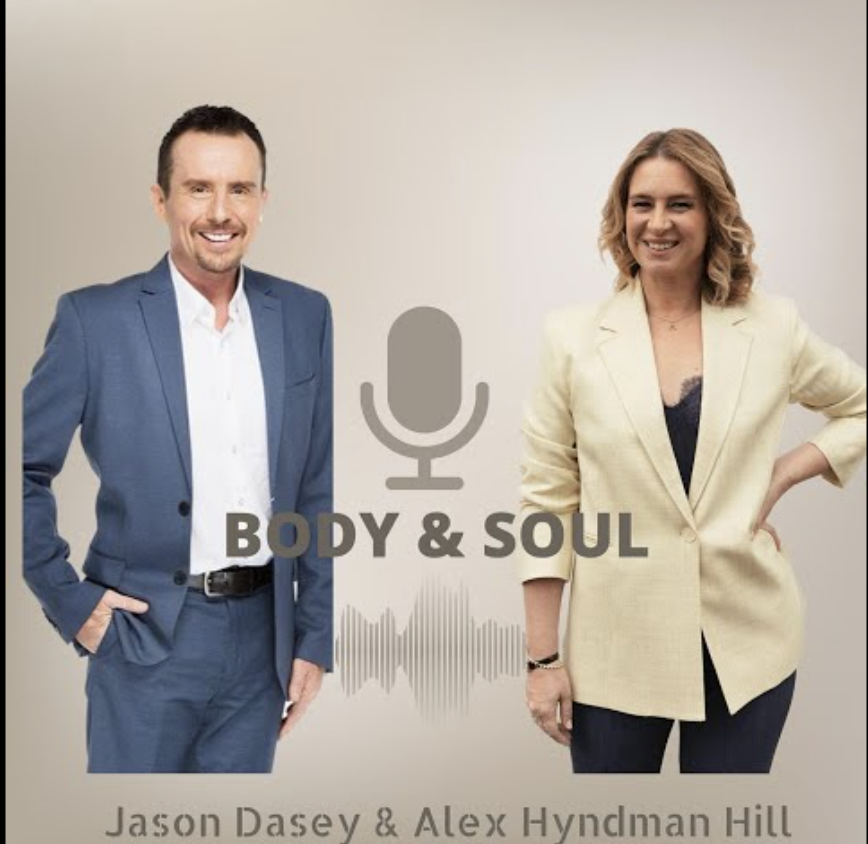
We were reflecting on grief recently, when Cockatoo Media’s Body and Soul podcast’s Jason Dasey and Alex Hyndman Hill interviewed me.
If you’d like to listen, here is the interview.
Alex asked about the good death.
“A Good death is defined differently from one group to another. In our culture today we say a good death is death that’s pain free and where there’s a minimum of soul pain. And social affairs are as in order as they can be.”
And when it comes to having ‘that conversation’ – how do we do this in our death avoidant culture?
Alex said she and her mother agreed recently that they needed to sit down and talk about aspects of end-of-life planning.
“But you almost feel guilty. Because you don’t want to say ‘You’re old, you’re going to die.’ But we’re all going to die aren’t we? Why do we find it so hard?”
Alex Hyndman Hill
“But you almost feel guilty. Because you don’t want to say ‘You’re old, you’re going to die.’ But we’re all going to die aren’t we? Why do we find it so hard?” Alex asked.
I shared how often at Understand Death Better talks an elderly person will come up and say ‘I’ve tried to have this conversation with my children but they keep dismissing me’.
“What we all have to do, both adult children and those with adult children, is to learn how to say ‘Look, this is a conversation that we need to have’.
“Don’t imagine it’s a one stop shop. The goal is not to have one conversation and tie all the ends off. In fact, there are lots of moving parts. It’s a journey. You’re not going to get there in one single session of three hours.
“It’s a conversation you will need to keep having. And you will say to them, ‘Okay folks, look we’ve had a great conversation about this now. Let’s revisit it again in a couple of years’.”
How do we talk to someone about their grief?
Reflecting on grief and the conversations we will have about it, Jason asked what do you say to people who maybe have had a relative, a spouse or a close friend die?
“Because we don’t acknowledge death and because we’re a grief avoidant society, there are greater taboos now around acknowledging somebody’s grief and the messy place that they’re in,” I explained.
“Usually we are terrified that if we come across somebody who has had a bad experience, a bad grief experience, that we won’t know what to say to them. We’re frightened that we’ll say the wrong thing.
I’ve learnt to say, look I don’t know what to say to you. I just want you to know that I’m thinking of you,” I explained.
“To say very honestly to somebody and to express the fact that you’re completely overwhelmed by the nature of their loss is actually okay. You don’t need to say very much. The only thing I would suggest is don’t say ‘Oh get in touch with me and I’ll do anything, you know. Let me know what you’d like me to do.
“Usually, the person who’s in that grief state is in no position psychologically to be able to say ‘Yes, I’m going to add you to the list. You can walk the dog, Flossy down the street is taking the children to school.’ They’re not in that emotional position.
So the thing to do with somebody if you decide you want to take a step further than just saying ‘I’m here in this space with you now” is “Can I drop in a casserole for you?’ Or ‘Can I take your children to school for you.
Reflecting on grief – and other resources
There is another Good Grief! article about having that conversation here: https://good-grief.com.au/crucial-end-of-life-conversations.
And for something on social etiquette around death in the social media era, go to: https://good-grief.com.au/death-etiquette-in-the-age-of-instagram.
And for other podcasts about grief:
